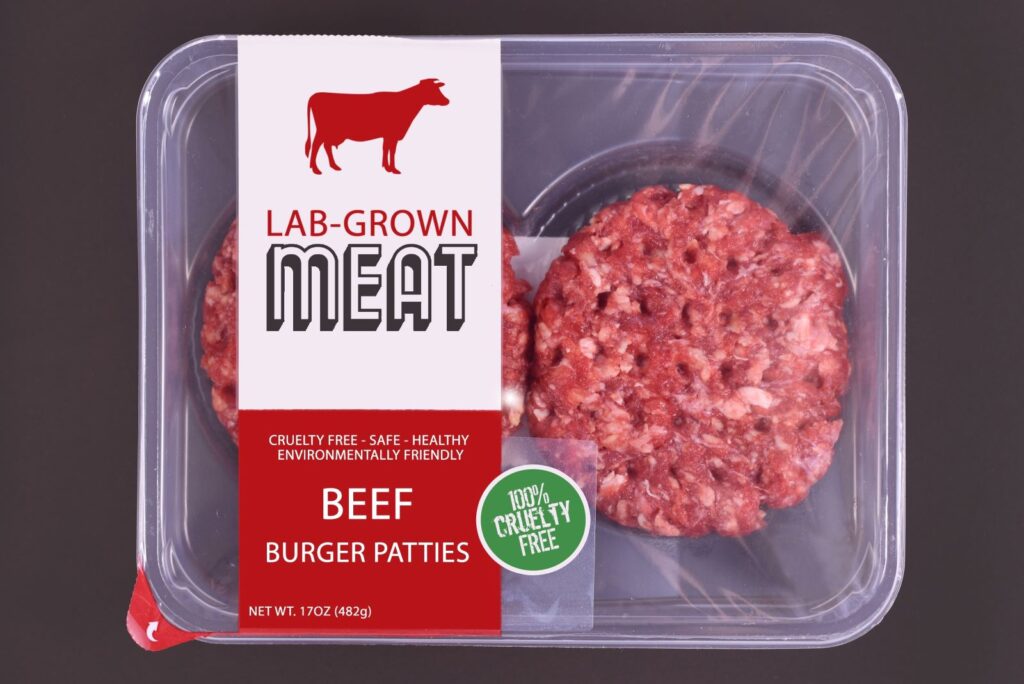Farmers invited to help identify the risks of cultured meat to UK agriculture
28th June 2023
A team of Royal Agricultural University (RAU) researchers looking to understand the risks and opportunities of lab-grown meat is offering farmers a funded opportunity to share their views on how the controversial technology might impact UK agriculture.
Cultured meat, also known as cultivated, cell-based, or lab-grown meat, is a type of meat substitute which has attracted interest from investors because of its potential to have the same taste and texture as conventional meat, and thereby appeal to meat eaters.
Whether lab-grown meat will reach consumers or not is still being debated in most countries around the world. The product has been cleared for human consumption in the US, while the government in Italy has proposed to ban it from supermarket shelves.
As part of a UKRI-funded project, a team of farmers, researchers, and start-ups has identified the types of farm which are most likely to be affected by the technology and are now looking for farmers who might be interested in playing a funded role in helping to identify the winners and losers.
The two-year study, titled Cultured Meat & Farmers, aims to gather evidence on what farmers really think of cultured meat and how it could affect UK farm businesses. The findings from the study will then be used to advise policy makers when it comes to future legislation.
Professor Tom MacMillan, Elizabeth Creak chair in Rural Policy & Strategy at the RAU, said it is critical the impact on UK agriculture is considered when making decisions around cultured meat in the UK.
“Right now, we just don’t know who will be affected or how. This project intends to map out who the winners and the losers might be and gives farmers an opportunity to have their voice heard in the debate.”
The team involved in the project has already held focus group sessions with famers across the UK, where concerns were raised not only about how the technology could displace livestock farming, with the risk that carcase imbalances could amplify this effect, but also about its wider effects on nutrition, health, and corporate power in the food industry.
Possible opportunities were also discussed, ranging from strengthening the proposition for grass-fed meat, to supplying high-value inputs or even the possibility of producing cultured meat on-farm.
Part of the project team is Cellular Agriculture CEO Illtud Dunsford, who is interested in establishing a cultured meat business on his own farm. He believes there are benefits to be had by farmers from producing cultured meat should the product be approved for consumption in the UK.
He said: “Cultured meat presents opportunities that many farmers might not be aware of, growing it requires a starting population of cells and feedstocks to produce scaffold and the nutrient rich media to feed the cells, all of which could potentially be sourced from farms.”
The next phase of the project will involve working with farmers who are most likely to be affected by the new technology. Dr Lisa Morgans, Senior Lecturer in Animal Health & Welfare at the RAU, encouraged producers to take part.
“Any farmers who partner with us will be recompensed for their time and the findings could provide valuable business insights that could help them adapt or innovate in response to this and other emerging issues,” she said.
Those interested in taking part in the project can email Dr Morgans at Lisa.Morgans@rau.ac.uk for more information.

